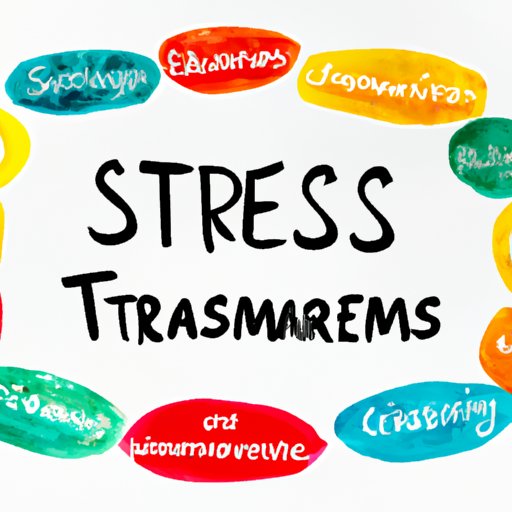
How to Deal with Stress: Tips and Tricks to Reduce Daily Tension
Stress is a common part of everyday life. It can be caused by a variety of situations, from work-related pressure to personal challenges. Although manageable in small doses, excessive stress can cause health problems, interfere with sleep, and negatively impact daily life. Therefore, learning how to deal with stress is essential for mental and physical well-being. In this article, we will share tips and advice on how to develop a stress-reduction routine, prioritize tasks, develop positive coping mechanisms, get organized, limit exposure to stressors, and seek professional help when necessary.
Create a Stress-Reduction Routine
One of the most effective ways to manage stress is by creating and maintaining a stress-reduction routine. By focusing on self-care and relaxation, you can lower your cortisol level, boost your mood, and reduce stress levels. Examples of activities that can be included in the routine include exercise, meditation, engaging in a hobby, spending time in nature, and taking breaks throughout the day.
It is essential to set aside time to follow the routine daily, or as often as possible. Find activities that fit your schedule, interests, and abilities, and incorporate them into your routine. For example, if you prefer to workout first thing in the morning, find a gym close to your home or office or follow workout videos at home. If you prefer quiet time, you can schedule meditation sessions or moments to just breathe and relax.
Prioritize Tasks and Responsibilities
Another way to manage stress is by prioritizing tasks and responsibilities. By setting realistic goals and managing your time effectively, you can reduce your workload and ensure that urgent tasks are completed on time.
To prioritize tasks and responsibilities effectively, start by making a realistic plan for your day or week. Break larger tasks into smaller, more achievable goals, and set deadlines. Make sure to leave some breathing room in case of unexpected events or complications. Additionally, focus on completing one task at a time instead of multitasking, as this can cause more stress and lower your productivity.
Develop Positive Coping Mechanisms
Developing positive coping mechanisms is essential to managing stress. By using healthy coping mechanisms, you can reduce stress levels, boost your mood, and improve your overall well-being. Examples of healthy coping mechanisms include talking with friends or family, relaxation techniques such as meditation or deep breathing, and engaging in a hobby.
To develop and maintain healthy coping mechanisms, you need to find strategies that work for you. Start by experimenting with different techniques and see which ones are most effective. Focus on cultivating habits that are easily integrated into your daily routine, and remember that practice makes perfect. Finally, try to avoid unhealthy coping mechanisms such as alcohol, drugs, or excessive eating, as they can have negative consequences for your health.
Get Organized
Getting organized can also help reduce stress levels. By decluttering your space, managing your time, and setting clear boundaries, you can create a more peaceful and harmonious environment. To get organized in your living and work spaces, start by removing any unnecessary items, organizing your belongings, and keeping your space clean and tidy.
Additionally, to maintain organization habits, create a system for managing your time and tasks. Use a planner or digital tool to manage your schedule, and set reminders for important dates or deadlines. Finally, set boundaries with your work and relationships. For example, turn off notification on your phone and computer when you’re not working, or be honest with someone if their behavior is causing unnecessary stress.
Limit Exposure to Stressors
Finally, limiting exposure to stressors is also important in managing stress. Stressors can come in a variety of shapes and sizes, from social media to stressful people or situations. By recognizing the sources of stress in your life, you can take steps to limit exposure and reduce the impact of stress on your well-being.
To limit exposure to stressors, start by identifying the sources of stress in your life. Once you have identified them, find ways to minimize their impact. For example, if social media is causing stress, limit your screen time or delete the app from your phone. If a particular person or situation is causing unnecessary stress, try to avoid it or find ways to deal with it effectively.
Seek Professional Help
In some cases, seeking professional help is necessary to manage overwhelming stress. If you have tried different methods to reduce stress, but it persists and affects your daily life, it may be time to seek help. There are many types of professional help available, such as therapy, counseling, or stress-management programs.
To seek help, start by doing research on the available options in your area. Talk to your healthcare provider, and ask for recommendations or referrals. Finally, make sure to find a professional whose values and methods resonate with you.
Conclusion
Managing stress is a crucial aspect of maintaining physical and mental well-being. By developing a stress-reduction routine, prioritizing tasks, developing positive coping mechanisms, getting organized, limiting exposure to stressors, and seeking professional help if necessary, you can reduce daily tension, boost your mood, and live a more stress-free life. Remember that managing stress takes practice and patience, and that what works for one person may not be effective for another. Therefore, experiment with different techniques, find what works best for you, and never hesitate to seek professional help if necessary.





